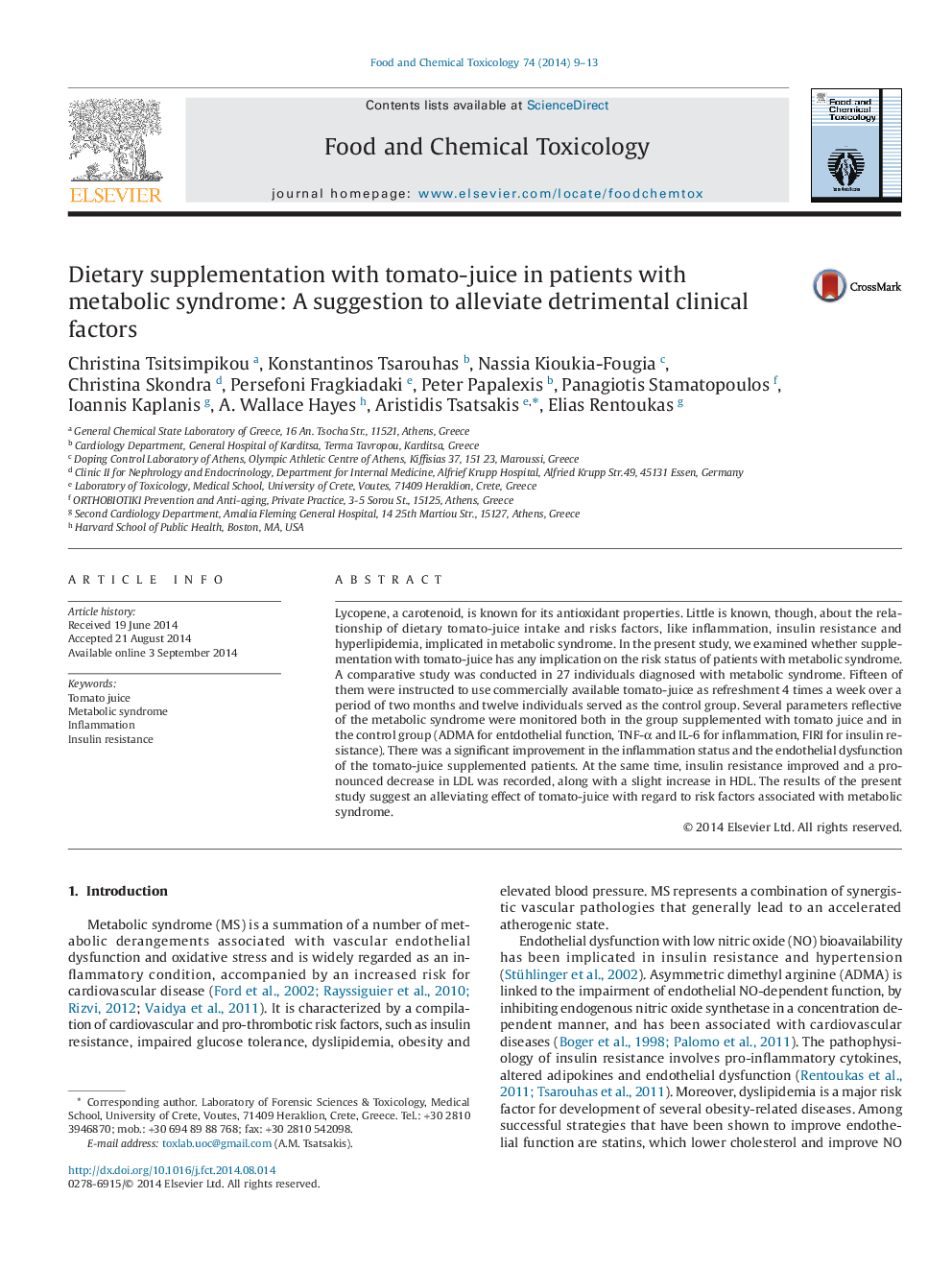| Article ID | Journal | Published Year | Pages | File Type |
|---|---|---|---|---|
| 5849948 | Food and Chemical Toxicology | 2014 | 5 Pages |
Abstract
Lycopene, a carotenoid, is known for its antioxidant properties. Little is known, though, about the relationship of dietary tomato-juice intake and risks factors, like inflammation, insulin resistance and hyperlipidemia, implicated in metabolic syndrome. In the present study, we examined whether supplementation with tomato-juice has any implication on the risk status of patients with metabolic syndrome. A comparative study was conducted in 27 individuals diagnosed with metabolic syndrome. Fifteen of them were instructed to use commercially available tomato-juice as refreshment 4 times a week over a period of two months and twelve individuals served as the control group. Several parameters reflective of the metabolic syndrome were monitored both in the group supplemented with tomato juice and in the control group (ADMA for entdothelial function, TNF-α and IL-6 for inflammation, FIRI for insulin resistance). There was a significant improvement in the inflammation status and the endothelial dysfunction of the tomato-juice supplemented patients. At the same time, insulin resistance improved and a pronounced decrease in LDL was recorded, along with a slight increase in HDL. The results of the present study suggest an alleviating effect of tomato-juice with regard to risk factors associated with metabolic syndrome.
Related Topics
Life Sciences
Agricultural and Biological Sciences
Food Science
Authors
Christina Tsitsimpikou, Konstantinos Tsarouhas, Nassia Kioukia-Fougia, Christina Skondra, Persefoni Fragkiadaki, Peter Papalexis, Panagiotis Stamatopoulos, Ioannis Kaplanis, A. Wallace Hayes, Aristidis Tsatsakis, Elias Rentoukas,
